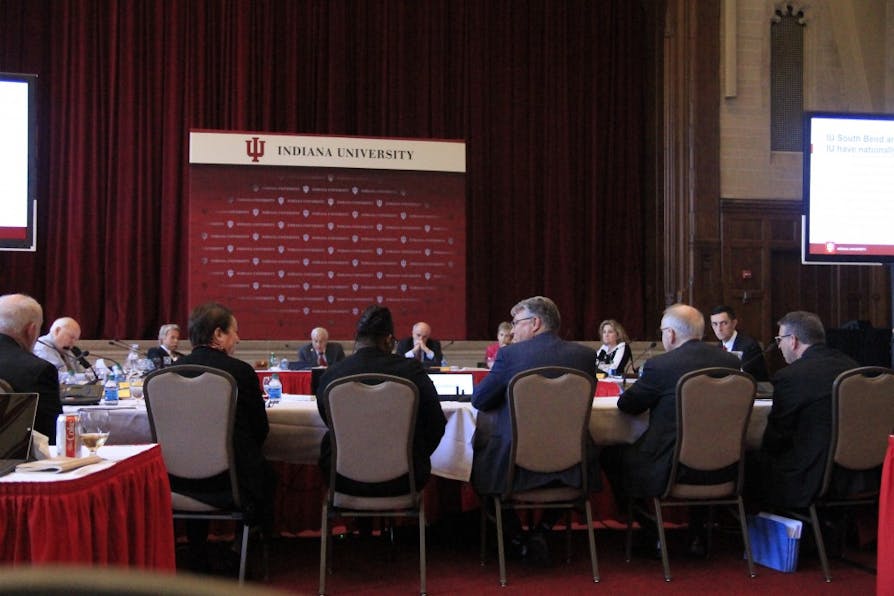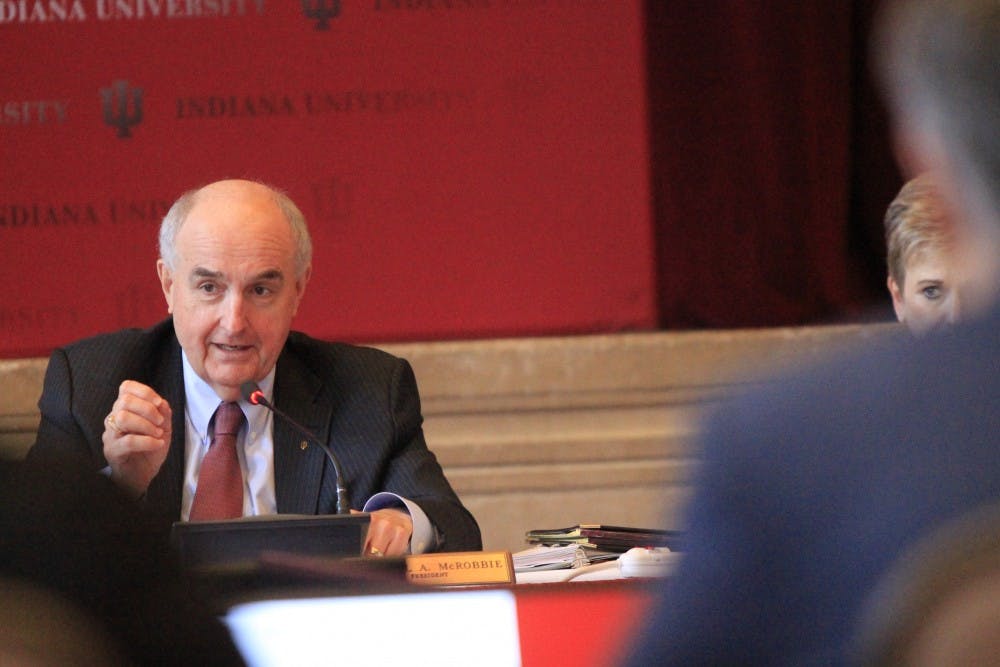The IU Board of Trustees first day of meetings heard reports on accreditation, campus updates, Title IX and student success. The board met Thursday in the Indiana Memorial Union.
Tomorrow’s meeting will include a review of current construction projects on campus as well as project and design approvals.
External Relations Committee
The External Relations Committee covered a legislative update, IU-Purdue University Indianapolis athletics and accreditation.
According to the IU Twitter page, IU was able to help change a bill that would have put a hold on granting professional licenses to DACA students.
Maurer School of Law Dean Austen Parrish said accreditation, which approves IU’s college credits for students, happens every seven years and consists of a three-day visit from accreditors.
"This is not fake news,” said IU Trustee Patrick A. Shoulders according to the IU Twitter page. “It is objective. We want to be considered with the best."
Student Relations Committee
Provost Lauren Robel gave the IU-Bloomington campus update, which covered diversity, student success and international admissions.
Applications from countries other than China, India and South Korea — the three largest groups of international students at IU — have grown by 68 percent from assessment year 2014 to assessment year 2017.
However, Robel said international student applications this year are 16 percent lower than usual.
She said the uncertainty of the ability to stay in the United States due to visa issues and national gun violence broadly covered by newspapers around the world were factors in the lower numbers.
Robel went on to cover student success, reporting a 92 percent employment rate for May 2017 undergraduates. She said if the same slide was put up three years ago, those numbers would have been 30 percent lower.
Robel also announced the College of Arts and Sciences will move academic advising and the Walter Center for Career Achievement to Ernie Pyle Hall, which will be finished being renovated this summer.
Robel said while the Eskenazi Museum of Art is being renovated, artwork from the museum has traveled to 47 second grade classes in Monroe County and Richland-Bean Blossom school districts.
Emily Springston, IU’s Title IX Coordinator, presented IU’s Title IX statistics for the 2017-18 school year as well as the recent resolution agreement from the Department of Education’s Office of Civil Rights.
Springston reviewed the strengths and weaknesses the OCR highlighted. Strengths included the stopsexualviolence@iu.edu website, sexual misconduct policy and procedures and confidential victim advocates among others.
Weaknesses included the long amount of time it takes to process cases, documenting what to do when the complainant requests the University take no action, and addressing sexual misconduct within greek organizations.
She said the OCR acknowledged some of its areas of concern had been resolved over the course of IU’s four-year compliance review.
Student Reports
Dan Niersbach, president of the IU Student Association, gave student reports on their executive contributions, academic, student and legislative affairs.
Niersbach mentioned their Menstrual Product Initiative, which brought feminine hygiene products to all academic buildings. IUSA also worked with University Information Technology Services to bring name pronunciations and pronoun options to Canvas profiles.
Niersbach also announced plans are being finalized to create a student liaison to the Bloomington City Council as a student advisor.
Adam Reneker, the president of Graduate and Professional Student Government, covered problems burdening graduate and professional students, such as the high cost of campus daycares, health insurance plans, and sudden changes to fees, like the international services fee.
He said when international students returned to campus last fall, they found the international services fee had increased by over 400 percent from the year before, up to $200 per semester.
“Contrary to popular belief, many of our international graduate students live paycheck to paycheck,” Reneker said. “They have a fixed income based on their stipend, and their stipends don’t increase just because fees increase.”





